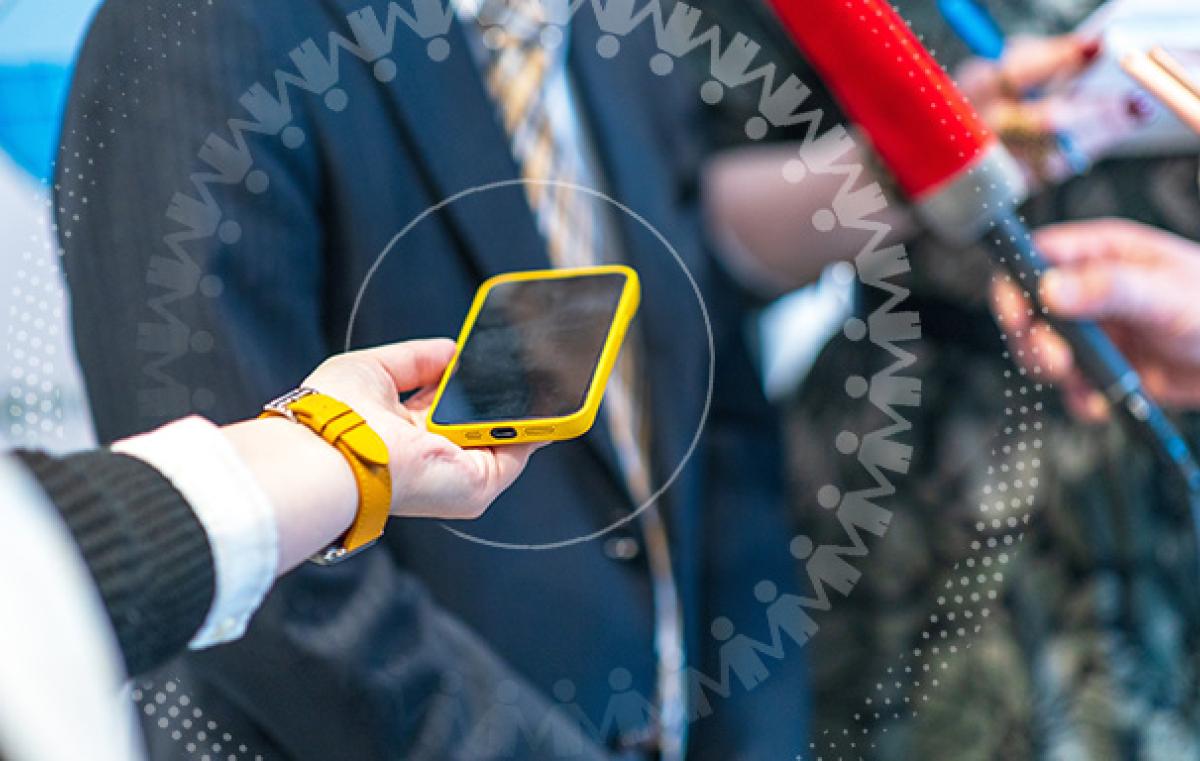How Journalistic Authority is Challenged by WhatsApp News Groups
A case study of breaking news coverage reveals the complex relationship between pseudo-professional and professional journalism in today’s mobile news environment.

Pseudo-professional WhatsApp news groups which are based primarily on materials that are supplied daily by participating citizen members are a relatively new player in the world of breaking news. A recent study by Dr. Jonathan Ilan from Bar-Ilan examined how journalistic authority is challenged by such WhatsApp news groups, particularly during critical events.
The research focused on a breaking news incident in Tel Aviv, where a Palestinian gunman opened fire on Dizengoff Street. By comparing between the coverage of the incident by a leading Israeli TV news broadcast (News13) and the way it was handled by a leading pseudo-professional WhatsApp news group called "Field Security" from a journalistic authority standpoint, the study revealed intriguing insights into the evolving nature of news reporting:
While TV reporters rushed to the scene, for example, WhatsApp group members were already sharing firsthand accounts and raw footage. This "citizen witnessing" provided an unfiltered, immediate perspective on the unfolding events. The ability to shoot images and videos at the scene in real time and swiftly share them with group members is clearly one of the group's strongest virtues.
Additionally, both professional journalists and the WhatsApp group members showed a commitment to accuracy. TV reporters cautiously delivered information and made on-air corrections when necessary. Similarly, the WhatsApp group's founder and members actively worked to verify information and maintain "operational" (professional) standards.
Perhaps the most significant advantage of the WhatsApp group was its ability to provide raw, unedited visual content quickly. These materials often appeared in the group before being aired on television, demonstrating the speed at which citizen journalism can operate, but also the unique relations of information exchange that is established between these groups and traditional news outlets. To that end, the study revealed a complex dynamic between traditional media and these new participatory digital platforms. While TV journalists initially expressed scepticism about the reliability of WhatsApp-sourced content, they ultimately incorporated these materials into their broadcasts, recognizing their journalistic value.
"What emerges are the complex dialectic relations between 'Field Security' and News13, and perhaps those of participant new actors and professional sources of news information at large," observed Dr. Ilan.
This case study opens up new avenues for exploring the future of journalism. As technologies evolve and citizen participation in news gathering increases, the boundaries of journalistic authority continue to shift.
While WhatsApp groups like "Field Security" challenge traditional notions of who can report the news, they also embrace shared ideals about what journalism should be. This tension between innovation and established practices promises to shape the future of news reporting in the digital age.
The relationship between professional journalists and citizen witnesses will continue to evolve, potentially leading to new forms of collaborative reporting that combine the best of both worlds.